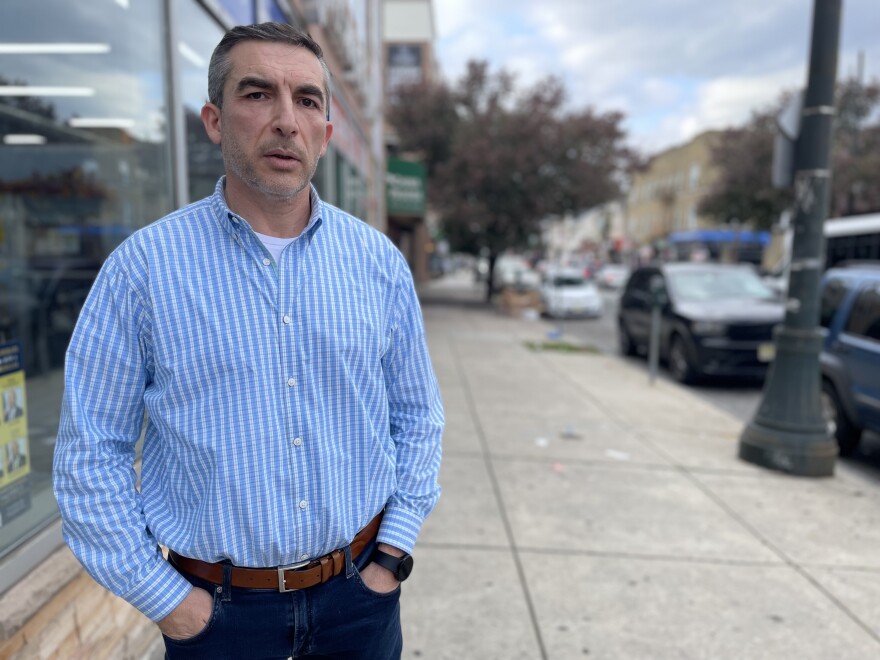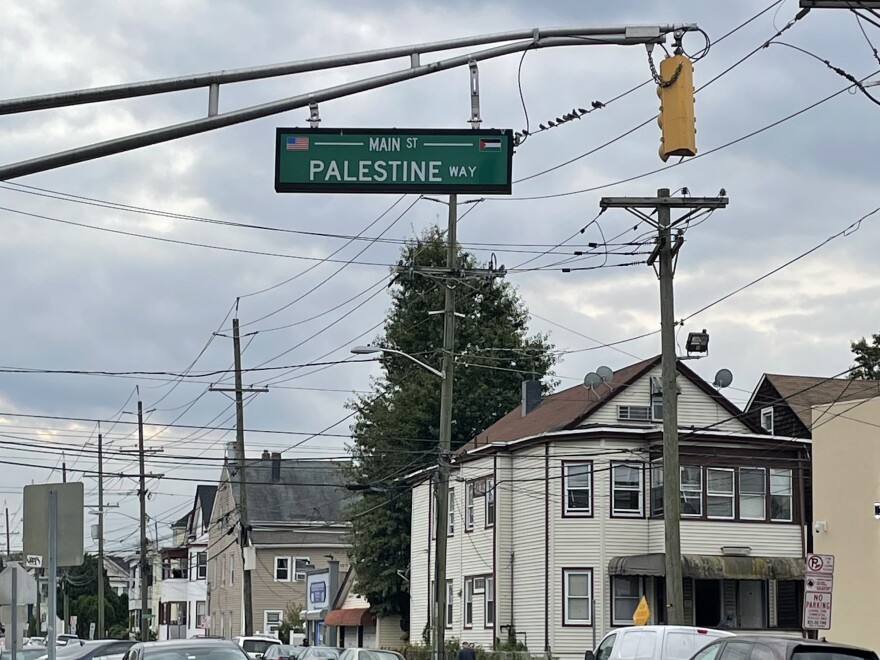Grief is tangible in the New Jersey neighborhood known as Little Ramallah, home to one of the largest Palestinian populations in the U.S.
"I'm not the person that I used to be two weeks ago," said Amjad Abukwaik, who was born in Gaza, but now owns Sheefa Pharmacy on Palestine Way in the Paterson enclave.
Every person in Little Ramallah seems to have a loved one who was killed in the last two weeks. Abukwaik lists friends among the thousands killed since the outbreak of the Israel-Hamas war.
Locals call Abukwaik Amu, which means "uncle" in Arabic. These days, Abukwaik is very quiet, he hardly speaks to the customers he used to banter with every day.
"When people talk to me, I just often tell them, please stop talking. I can't talk right now ... I need the mental break," said Abukwaik.

He says he's showing up for work. But it's hard to be present.
"I need to be strong," he sobbed.
"People are having anxiety attacks. They are hurt," local businesswoman Najwa Alsadi said. Everyone in town is hunched over their phones, she added.

"We do not eat, we hardly do any work, because we are glued to either the TV or the phone, to find out what is going on with the family," she said.
In a recent text exchange with a young nephew, she asked if he's still alive.
"Yes we are," he responds. "For now. No place is safe in Gaza."
She's trying to get her family to Canada. She hasn't even considered the U.S.
Since this war began, Republican leaders have introduced a bill banning anyone with a passport issued by the Palestinian Authority from seeking asylum. It's already difficult for a Palestinian to do so in the U.S.
In the past 10 years, fewer than 600 have gone to the U.S. as refugees.
"It's not even part of the discourse," says Rania Mustafa, executive director of the Palestinian American Community Center. "... it goes back to the idea that Palestinian lives are not worth it. We've been dehumanized for years. "
Abukwaik, the pharmacist, says those who want and need to leave should, but he adds, when it comes to Gaza, "we own that land. It's our land."
The conversation looms about what should happen after the war.
"We've all been trying to understand, how do we move forward?" said Mustafa.
But a more pressing concern, she notes, is reaching a ceasefire and an end to the mounting death toll.
"I've always been proud of the fact that I'm American, that I have the right to speak," Mustafa said. "I feel like I'm not only speaking, I'm yelling and screaming at the top of my lungs, to deaf ears."
There's no indication that a ceasefire is near.
Earlier this week President Biden asked Congress for $14 billion for Israel, and announced $100 million in aid to help civilians in the Gaza Strip and the West Bank.
Gaza has been under a land, air and sea blockade that has restricted the movement of people and basic goods for some 16 years now.
After Hamas' deadly surprise attack, Israel cut off food, fuel, water and electricity from entering. Twenty trucks carrying medicine, medical supplies and food crossed into Gaza on Saturday morning from Egypt, but with the siege, it's not clear how that aid will reach people.
The U.N. says this conflict is "an unprecedented catastrophe," and warned of an ethnic cleansing.
The looming question in Little Ramallah is: How many of their loved ones will survive?
Copyright 2023 NPR. To see more, visit https://www.npr.org.




